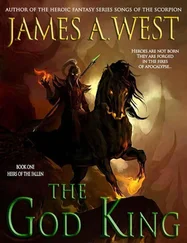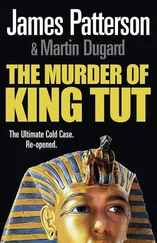James Flecker - The King of Alsander
Здесь есть возможность читать онлайн «James Flecker - The King of Alsander» — ознакомительный отрывок электронной книги совершенно бесплатно, а после прочтения отрывка купить полную версию. В некоторых случаях можно слушать аудио, скачать через торрент в формате fb2 и присутствует краткое содержание. Жанр: foreign_antique, foreign_prose, на английском языке. Описание произведения, (предисловие) а так же отзывы посетителей доступны на портале библиотеки ЛибКат.
- Название:The King of Alsander
- Автор:
- Жанр:
- Год:неизвестен
- ISBN:нет данных
- Рейтинг книги:4 / 5. Голосов: 1
-
Избранное:Добавить в избранное
- Отзывы:
-
Ваша оценка:
- 80
- 1
- 2
- 3
- 4
- 5
The King of Alsander: краткое содержание, описание и аннотация
Предлагаем к чтению аннотацию, описание, краткое содержание или предисловие (зависит от того, что написал сам автор книги «The King of Alsander»). Если вы не нашли необходимую информацию о книге — напишите в комментариях, мы постараемся отыскать её.
The King of Alsander — читать онлайн ознакомительный отрывок
Ниже представлен текст книги, разбитый по страницам. Система сохранения места последней прочитанной страницы, позволяет с удобством читать онлайн бесплатно книгу «The King of Alsander», без необходимости каждый раз заново искать на чём Вы остановились. Поставьте закладку, и сможете в любой момент перейти на страницу, на которой закончили чтение.
Интервал:
Закладка:
"I do not want silver," said the old man. "Look you here" – and he tossed into the air a heavy purse that hung by his girdle – "I want to show you the castle."
"Is it open to all visitors?" inquired Norman.
"No, but if I take you we shall pass," replied the vagrant, with assurance. Norman was surprised into accepting; more surprised still when the heavy-eyed sentries gave a sort of furtive salute to his disreputable guide; and most surprised on viewing the interior of the castle. "At all events there was one more thing to see in Alsander before I left," said he to himself.
For inside the frowning battlemented walls, instead of harsh keeps and dungeons, were the beautiful ruins of a beautiful garden. There was a riot of greenery, to which roses, orange blossom, jasmine and hybiscus gave the prominent colours and scents. The grass was sprinkled with cyclamen, asphodel, red anemones and with wild remnants of old cultivation. There were toy stone Greek temples, little cottages like English cottages, painted lath and plaster summer-houses like Turkish summer-houses, showing the bare bones of their construction at every windy corner.
"Who made all this?" inquired Norman.
The old beggar turned away from the garden and pointed to the vast encircling quadrilateral of the wall, as grand from within as from without.
"This wall," he said, standing up straight and waving his hand around with curious enthusiasm, and speaking in a vibrating but refined voice which ill befitted his rags and mouldering beard, "is the work of Kradenda the Great, founder of the power and glory of Alsander, against whose statue you were leaning in the square. Now I know many stories of the great Kradenda, and will tell you one, my lord. In those days the Saracen galleys had driven the people of this land up into the hills, and the plain was all a waste. Now Kradenda was a shepherd lad, and one day he went out at the head of his fellows and burnt the fleet of the infidels…"
"Oh, I have heard the story," said Norman. "Milord is impatient," said the beggar. "But I am glad that after so short a stay in Alsander he should know at least one story of Kradenda the Great. There are, of course, many other stories. My lord, have you heard how King Kradenda recultivated the plain?"
"No, I have not heard that story. Tell me.
"Well, I will tell you. It was like this. Malaria had gripped those good rich lands, and not a soul would reclaim them for fear of disease. The Great King ordered his people to recultivate the plain. But so many died of fever that they murmured against the order. Thereupon he called to them and told them that they were soldiers and would they run from an enemy? 'Never,' they said, 'if he led them,' 'Do you not see, then,' said the King, 'that fever is our enemy now that I have driven off the infidel: you must fight it and die for your country if needs be.' 'We will! obey,' said the old chief who had led the deputation, 'but only if you lead us.' Whereupon? the King laughed and bade them follow him, and there and then he pitched his tent in the filthiest part of the marsh and began to dig a channel for the waters with his own hands. In that way the marsh was soon drained and dry, and such a man was the first Kradenda."
"That is a good story," said Norman, "and well and concisely told. But tell me now about the garden and the summer-houses and the fountain."
"What of them?" said the guide. "The summer-houses are crumbling, the garden is a wilderness and the fountains play no more."
"Weird talk from a beggar," thought Norman. "But who built them?" he inquired aloud. "They are quite beautiful."
"They were built by King Basilandron: he was quite beautiful, too."
"I have never heard of him, though my landlady, who is a wise woman, has told me much of the history of your charming country."
"Ah, we do not talk much of him in Alsander. Here is his name, cut in the wood."
He showed Norman an inscription on the side of a little summer-house with wooden tracery and a faded blue paint, which ran: ΒΑΣΙΛΑΝΔΡΩΝ.
"But why is it in Greek letters?" inquired Norman.
"He would have everything in Greek. He it was who called the river Ianthe. It was known as Vorka before."
"You know the history of Alsander well," said Norman, more and more astonished at the language and erudition of his guide.
"I love Alsander," said the old man. "I know all the stones of this castle and all the stories of Alsander's past."
"Then tell me the story of King Basilandron," said Norman, "for I have never heard it. And after that I shall ask you to tell me the story of your life: for rags do not make you a beggar."
"Neither does my erudition prove me to be a prince in disguise," said the old fellow with a smile. "But I would rather even tell you the story of my life, tragic as it is, than tell you the story of King Basilandron, which is the tragedy of a nation, and one that those who love Alsander do not care to tell.
"Tell me first the story of Basilandron and then the story of your life."
"It is little we poor citizens of Alsander can refuse to the inquiring tourist," said the old man with acerbity. "And may the devil torment you for a member of a great nation that can look after itself. We, you know, are supposed to be incapable of self-government, especially since we went bankrupt a year or two ago, and actually dared to ruin some French bondholders. Since that day the Great Powers have been terrifying us with an international commission. If ever there is a free fight in a café here, or a dog-fight in the square, some foreigner writes to a European newspaper about the anarchy in Alsander. American missionaries, who believe in Noah's Ark and the historical existence of Methusalem, revile the degraded superstitions of our peasants who still hold to their immemorial festivals in honour of the water that bursts from the rock or the grape that grows dark on the vine. And now we are threatened with inspectors, all of varying nationalities, to avoid all appearance of intrigue or possibility of jealousy. You see our strategic importance is the only importance left to us – otherwise we should long ago have disappeared. So we are to have a Spanish Financial Inspector and a Swiss Sanitary Board. Our gendarmerie will be organized by a virtuous Dane. Our agriculture will be modernized by an energetic Dutchman. Our public conveniences will doubtless be improved by one of your own compatriots."
"My compatriot," said Norman, "will not be unoccupied. But I insist upon your telling me the tale of King Basilandron."
"I will tell you, milord, since you are so importunate, but forgive me if I have been impolite. These things touch me so near.
"Well, then, King Basilandron ruled in days when certain ideas from Italy, having reached Alsander, had turned the heads even of sober people and made great havoc of the Court. It was in those days that all this wood and plaster work which you so much admire was erected; it was in this garden that night after night King Basilandron held revel, to the great pleasure of those engaged therein. The Court was all crammed with fiddlers, painters, poets, dancers, barbers and buffoons. But they were quack fiddlers, feeble painters, vile poets and clumsy dancers, who would not have dared to move a leg in Italy. But the barbers and buffoons were such as the world has never seen, so dexterous and stylish. Need I tell you how the country was taxed to maintain this alien population, or how the people groaned and murmured, or how the aesthetic monarch kept them quiet and amused by diverting pageants? All sorts of pageants there were – of beggars, thieves, madmen, lovers, heretics (real heretics, subsequently burnt), queens of antiquity, widows, tigers and Turks. But a pageant was the end of the whole business, as I will tell you now.
Читать дальшеИнтервал:
Закладка:
Похожие книги на «The King of Alsander»
Представляем Вашему вниманию похожие книги на «The King of Alsander» списком для выбора. Мы отобрали схожую по названию и смыслу литературу в надежде предоставить читателям больше вариантов отыскать новые, интересные, ещё непрочитанные произведения.
Обсуждение, отзывы о книге «The King of Alsander» и просто собственные мнения читателей. Оставьте ваши комментарии, напишите, что Вы думаете о произведении, его смысле или главных героях. Укажите что конкретно понравилось, а что нет, и почему Вы так считаете.











